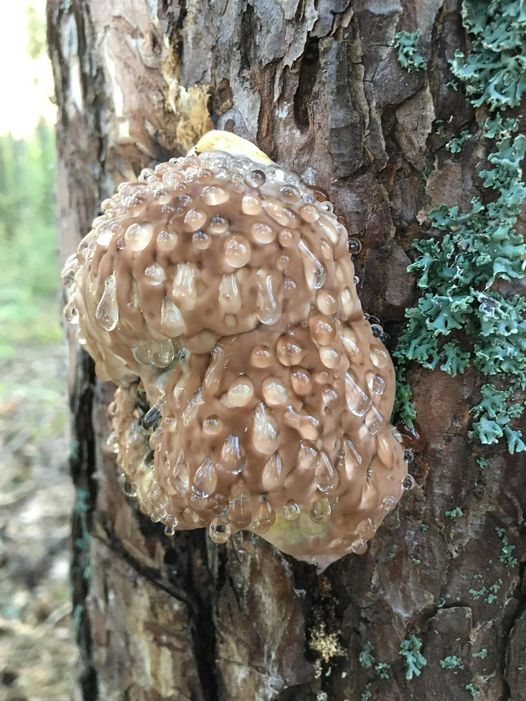
Oozing excess water
Today, instead of sharing pictures from Waterton Lakes National Park, I’m adding three closer-to-home shots I took yesterday, July 23, 2015.
Probably a forty-minute drive from the city, five of us spent the day botanizing Darryl Teskey’s acreage, which is located southwest of Millarville and southwest of Calgary.
I had never visited there before, but I’m so happy I did since I would have missed a number of mushrooms, like this one and two more Red-belted polypores, or Fomitopsis pinicola (?) and their exquisite guttation droplets.
I really appreciate you coming over to look at these, Karel. brightened my day!
Certain fungi have a peculiar habit of exuding moisture beads, a phenomenon known as guttation. Some polypores, like Fomitopsis pinicola, create a liquid so similar to tears that you could mistake it for actual tears being released by the fungus. or even perspiring.
Some animals create colored droplets that resemble blood, tar, or even milk.
In botany, the process by which plants expel extra water through leaf drops is referred to as “guttation.” This is so typical of certain mushrooms that it serves as a trustworthy means of identification.
Luckily, the rain held off until we had to begin our drive back to Calgary. Many black clouds, which made me think of the tornado that hit Calgary the day before, July 22, 2015, and included my community as well.
Our stroll crossed meadows and passed through forests, all of which were dangerous due to the numerous, frequently hardly perceptible fallen logs. There may have been hundreds or possibly thousands of these vivid orange beauties flying or perched on blooms of every color. I have never, ever seen so many small Skipper butterflies.
As usual, our goal was to locate and inventory every organism we observed, including fungus, trees, grasses, birds, insects, and wildflowers. After that, our leader creates a detailed inventory of everything we discover, which is then forwarded to the landowner along with any pictures we may have taken.
It’s always a win-win situation since we have a great day and the landowner gets a lot better sense of what exactly is on his property.
Due to my several botanizing excursions this summer, including two three-day excursions to Waterton Lakes National Park, I am far behind on the images I need to edit and send!